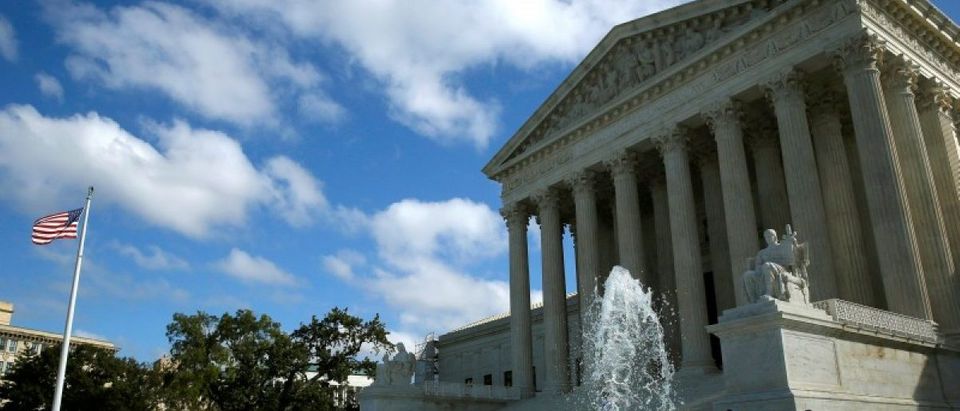Conventional wisdom dictates that the Supreme Court’s vacancy occasioned by Justice Antonin Scalia’s death has left the nation’s highest court unable to perform core functions, but a number of legal scholars have suggested a downsized court may be in the nation’s interest.
Scholars favoring a reduction are divided as to the court’s ideal composition, but they feel a smaller Supreme Court would reduce judicial adventurism and promote restraint.
In the pages of National Review, professor Michael Paulsen of the University of St. Thomas School of Law endorsed a six-member Supreme Court. He argues a smaller Court would marginalize the role of the next president (he believes both candidates portend bad things for the judiciary) in shaping the Court’s future, and that a smaller panel is likely to eschew activism.
It is time to shrink the stakes by shrinking the Court itself. Bluntly put, the Supreme Court should be smaller so that it can do less harm. There are two routes to this goal.
First, and most immediately, it would remove from the political realm the debate over appointment of Supreme Court justices for this election cycle and likely for the next several years — quite possibly for the entire next presidential administration. This would be a good thing.
The second excellent reason to shrink the Court is that it would reduce the Court’s capacity to do damage to the Constitution. How would that work? Simple: A smaller court means diminished judicial activism.
Eric Segall, professor at Georgia State University College of Law and author of “Supreme Myths” agrees with that assessment, but supports an eight-member Court. He wrote in The New York Times in May:
A five-member conservative or liberal majority on the Supreme Court can impose a partisan political agenda on the country without too much difficulty, often with one key justice dictating the results. With eight justices equally divided among conservative and liberals, the court can only act decisively when at least one justice switches sides. This is a state of affairs to be celebrated, not lamented, and may be appreciated when the court is fully staffed again.
Segall also argues the nine-member panel of recent years has allowed one man, Justice Anthony Kennedy, to exert undue influence over the country’s civic and political life. (RELATED: McCain: GOP Senate Will Block Hillary’s Supreme Court Nominees)
Professor Kevin Walsh at the University of Richmond School of Law expressed agreement on Twitter.
The Constitution does not set requirements with respect to the size of the Supreme Court. The Judiciary Act of 1789 established a panel with one chief justice and five associate justices.
Send tips to kevin@dailycallernewsfoundation.org.
All content created by the Daily Caller News Foundation, an independent and nonpartisan newswire service, is available without charge to any legitimate news publisher that can provide a large audience. All republished articles must include our logo, our reporter’s byline and their DCNF affiliation. For any questions about our guidelines or partnering with us, please contact licensing@dailycallernewsfoundation.org.


